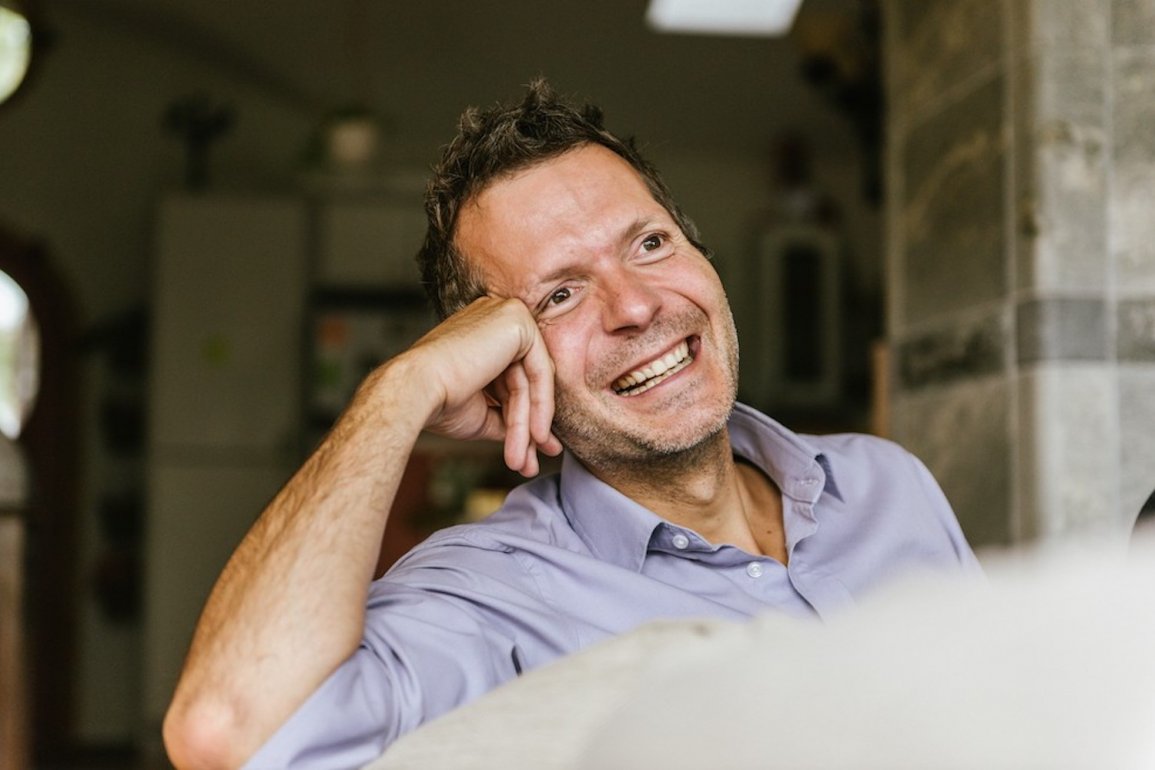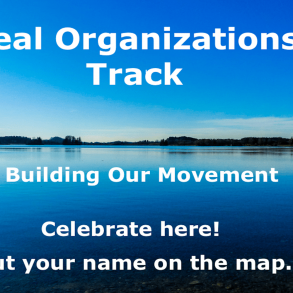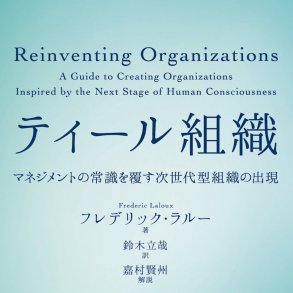Highlights selected by Charlie Efford for Enlivening Edge Magazine from interview originally published at fredlaloux on medium.com
Introduction by EE Magazine:
Recently, Frederic Laloux took the time to answer many of the questions he receives, via doing a rich and long-overdue self-interview. This below from EE Magazine contains just lightly-edited excerpts, picking out some of the highlights. The full article has much more detail and is well worth taking the time to read.
Q: Reinventing Organizations came out a few years ago. Can you share, from your perspective, what has happened since?
Perhaps the most essential answer is this: I believe the book has shifted the conversation, in many circles, from the frustration with all that is broken in management to a conversation of possibility. I think that’s the biggest contribution of the book overall— for many people, the question is no longer How can we fix this or that issue we have in our organization? Instead the question becomes Wow, could we adopt this whole new way to structure and run our organization?
Q: What kind of shifts do these organizations do? And how does it unfold?
What people mention most often, probably because it is the most striking change, are the steps they are taking towards self-management. And as is often the case with self-management, the results can be stellar. Colleagues blossom; profitability and productivity go through the roof. So much of the BS, the power games, the useless meetings simply disappear. In larger organizations, this takes more time. What you see are pockets that go really fast and achieve great results, but they also experience frictions with the rest of the organization.
Q: Many people talk about Reinventing Organizations as a movement. Do you think about it in those terms too—a movement? Or could it turn out to be a fad?
When we speak about a movement, we can think narrowly around Reinventing Organizations. But I like to look at it more broadly. Much is brewing in the field! There is everything happening around agile; there are communities forming around Conscious Capitalism, uLab, ResponsiveOrg, Holacracy, Sociocracy; in France there is a movement of entreprises libérées. … There is something in the air that Reinventing Organizations is both a part of and hopefully a catalyst for.
Q: What makes the book resonate so deeply with people?
One reason certainly has to do with the amount of unspoken pain there is in organizations. So many executives are exhausted by playing a game they no longer believe in. So many doctors, nurses, teachers, and administrators are hanging in there by a thread. They continue going through the motions even though what is asked of them makes no sense and sometimes feels offensive.
But because no one talks about this, many people end up believing something is wrong with them. It seems to be a huge relief to realize that it’s not them who are crazy, but the current system that has been pushed beyond its limits.
Q: How has the success of the book impacted you? What has changed for you since the book came out?
Oh, there are many layers to this. From one perspective, my life hasn’t changed much at all. A few years before the book came out, I understood, at some deep level, that I’m meant to live a pretty simple life centered around my family, and that making a career or being successful wasn’t very important to me. I’ve never been a very ambitious person, in the sense of “making it big.” So I continue living a simple life, spending lots of time with my two young children, surrounded by nature and community in this wonderful ecovillage I moved to.
At a deeper level, Reinventing Organizations has been a blessing. Truth be told, there have been long stretches where I’ve felt overwhelmed with the email overload and the never-ending requests for my time. But mostly, it’s been a wonderful privilege to see a piece of work I’ve done resonate so much with so many people. I’ve also met many wonderful people through the book. I feel I’ve met more beautiful people in the last four years than in the previous forty years of my life.
At an even deeper level, I believe the book’s reception has given me a certain sense of inner peace, of self-confidence, of fundamental okay-ness. For years, I’ve felt a very subtle tension: I’m not ambitious by temperament, and yet there was often this sense that there was some energy in me that wasn’t properly used, something I could contribute, but I didn’t know how or what it would be. This work reaching so many people has resolved that tension—it’s as if I feel I’ve done my thing, I’ve done my contribution; now it’s up to others to run with it.
I’ve also learned to say “no” in a graceful way. For me, that was a big thing to learn. But quickly, I had no choice because I got so many requests for talks or consulting that I had to learn. There is a part of me now that feels really centered, that can stand up for my needs and say “no” without apologizing, in a simple and compassionate way. It’s a powerful feeling.
Q: Why are you giving so few talks?
Because I accept almost no talks or interviews, some people have come to believe that I must be some kind of recluse who doesn’t like to be in public (laugh), when really I have a blast being on stage or meeting people. And of course, the less I’m out there, the bigger the interest. When I was scheduled to give a talk in Paris, the nine hundred rather expensive seats sold out in just over a day. And for a talk later in Brussels, all five hundred seats were snapped up in just four hours. I felt like a rock star (laugh)!
Q: So, with or without you, what do you feel is coming up?
The book has been really successful in the US, but not yet at the pervasive level it has attained in some countries in Europe. I think it’s going to be interesting to see how things unfold. I guess the narrative here in the US that business is and should be only about shareholders and profit is particularly strong, and I’d love it if Reinventing Organizations could participate in shifting that story.
On a personal level, you might have heard about the new project I just launched. It’s a video series called Insights for the Journey. I haven’t done any formal consulting since the book came out, but I’ve had really interesting conversations every once in a while with leaders who have gone on a journey to reinvent their organizations.
Across these conversations, I found a number of patterns emerging: things that work and things that don’t, typical pitfalls many organizations discover, things we are called to unlearn and relearn. … At some point, I found my notebook full of insights I felt like sharing.
Just to be clear, the video series is not a rehash of the content of the book. In the book, I tried to answer the question: Is it possible to run organizations in a whole new way? I now know the answer to be an emphatic “Yes!”
Since then, a new question has emerged: So how do we do it? How do we reinvent an existing organization in such fundamental ways? That’s a whole new field of inquiry that’s opening up, in which we are all still very much learning. The video series is my way of sharing emerging answers, in the hope that it will entice other people to share their emerging insights too.
Republished with permission.
Featured Image/graphic link from Medium.com. Photo credit: Freunde von Freunden — Robert Rieger




